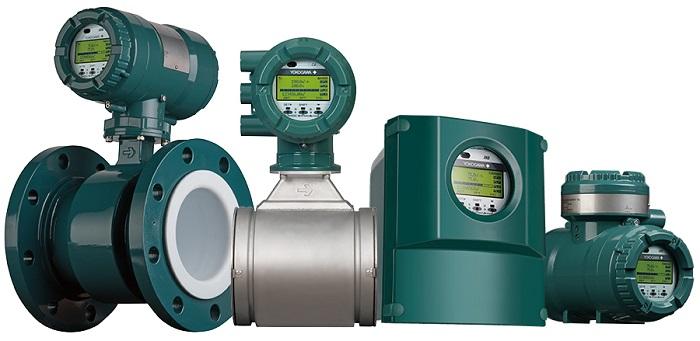What Fluids Suit a Turbine Flow Meter Best?

A turbine flow meter is a precise instrument for measuring the flow rate of liquids and gases. It operates by using a rotor placed in the flow stream. The moving fluid turns the rotor, and the rotation is converted into a flow rate measurement. Turbine flow meters are popular in industrial and commercial applications because of their accuracy, reliability, and versatility. However, not all fluids are equally suitable for this type of meter. Factors such as viscosity, cleanliness, temperature, and chemical compatibility affect performance. Understanding which fluids suit a turbine flow meter best helps engineers and operators select the right application for optimal results.
Key Factors for Fluid Suitability
Viscosity
Low-viscosity fluids work best with turbine flow meters. High-viscosity liquids can slow the rotor, reducing accuracy. The meter is calibrated for specific viscosity ranges, and exceeding them may cause errors. Water, light oils, and some chemicals fall within this optimal range.
Cleanliness
Turbine flow meters require clean fluids. Particles, debris, or sediments can damage the rotor or create friction. Fluids must be filtered to avoid clogging or excessive wear. Clean liquids ensure long-term reliability and consistent performance.
Chemical Compatibility
The materials of the turbine flow meter must resist the fluid’s chemical properties. Stainless steel rotors and housings are common for compatibility with many chemicals. Fluids that are highly corrosive or abrasive may need specialized coatings or materials. Choosing the right combination prevents corrosion, leaks, and mechanical failure.
Temperature and Pressure
Fluids should remain within the operating temperature and pressure range of the turbine flow meter. Extreme conditions can warp the rotor or damage bearings. Most meters have specified limits that must be followed to maintain accuracy and safety.
Fluids That Suit a Turbine Flow Meter
1. Water
Water is the most common fluid used with turbine flow meters.
-
Cost-effective and readily available, it has low viscosity.
-
Clean water allows smooth rotor movement and high accuracy.
-
Widely used in municipal water systems, cooling towers, and irrigation.
2. Light Hydrocarbons
Light hydrocarbons, such as gasoline, kerosene, and diesel, are well suited.
-
Low viscosity allows the rotor to spin freely.
-
Clean and filtered hydrocarbon liquids reduce wear.
-
Common in fuel monitoring and petroleum processing.
3. Chemical Solutions
Many chemicals in liquid form can be measured effectively.
-
Acids, bases, and solvents are suitable if compatible with meter materials.
-
Stainless steel or specially coated meters handle corrosive chemicals.
-
Applications include chemical dosing, mixing, and industrial processing.
4. Light Oils
Light oils, including lubricants and edible oils, work well.
-
Their low to moderate viscosity allows accurate measurement.
-
Turbine flow meters provide consistent readings for batching and blending.
-
Filtering helps prevent particle buildup on the rotor.
5. Solvents
Organic solvents like alcohol, acetone, and hexane are compatible.
-
They are low-viscosity and flow easily through the meter.
-
Clean, filtered solvents maintain rotor life.
-
Often used in chemical manufacturing and laboratory processes.
6. Cryogenic Liquids
Some turbine flow meters are suitable for cryogenic fluids, such as liquid nitrogen or liquid oxygen.
-
Requires specialized materials for extreme cold.
-
Low viscosity of cryogenic liquids allows accurate rotor operation.
-
Applications include industrial gas distribution and scientific research.
7. Low-Viscosity Food Products
Certain food liquids, like water-based syrups and juices, are suitable.
-
Rotor-friendly and consistent in flow.
-
Clean and filtered to avoid clogging.
-
Common in beverage production and dairy processing.
8. Compressed Gases (Specialized Meters)
Some turbine flow meters are designed for gases such as air, nitrogen, and natural gas.
-
Gas density and temperature affect performance and calibration.
-
Low-viscosity gas ensures rotor spins without excess friction.
-
Used in pneumatic systems, gas monitoring, and process control.
Fluids Less Suitable for Turbine Flow Meters
High-Viscosity Liquids
Heavy oils, molasses, and slurries do not suit turbine meters.
-
Slow rotor movement reduces accuracy.
-
Calibration errors increase with viscosity.
-
Alternative flow meters like positive displacement or Coriolis types may be better.
Abrasive or Dirty Fluids
Liquids containing sand, dirt, or other particulates are not recommended.
-
Rotor can wear quickly.
-
Bearings may fail.
-
Filtration or alternate flow meter types is necessary.
Highly Corrosive Fluids Without Material Protection
Strong acids or alkalis may corrode standard turbine meters.
-
Only specially coated or alloy meters can handle these fluids.
-
Chemical compatibility must always be checked before installation.
Maintenance and Optimization
Filtration
Filtering fluids ensures the rotor spins freely. Clean inlets prolong the meter’s life.
Regular Calibration
Periodic calibration maintains accuracy. High-precision applications require more frequent checks.
Material Selection
Choosing the right rotor and housing material prevents corrosion and wear. Stainless steel, Hastelloy, and coated alloys are common options.
Conclusion
A turbine flow meter is highly accurate and reliable when used with suitable fluids. Low-viscosity, clean, and chemically compatible liquids are ideal. Water, light oils, hydrocarbons, solvents, and some food liquids provide excellent performance. Specialized meters can handle gases and cryogenic liquids. High-viscosity, abrasive, or highly corrosive fluids may damage the meter or reduce accuracy. Proper filtration, calibration, and material selection optimize performance. By understanding fluid compatibility, operators can ensure turbine flow meters deliver precise measurements and long-term reliability in industrial, commercial, and research applications.
- Art
- Causes
- Crafts
- Dance
- Drinks
- Film
- Fitness
- Food
- Jeux
- Gardening
- Health
- Domicile
- Literature
- Music
- Networking
- Autre
- Party
- Religion
- Shopping
- Sports
- Theater
- Wellness


